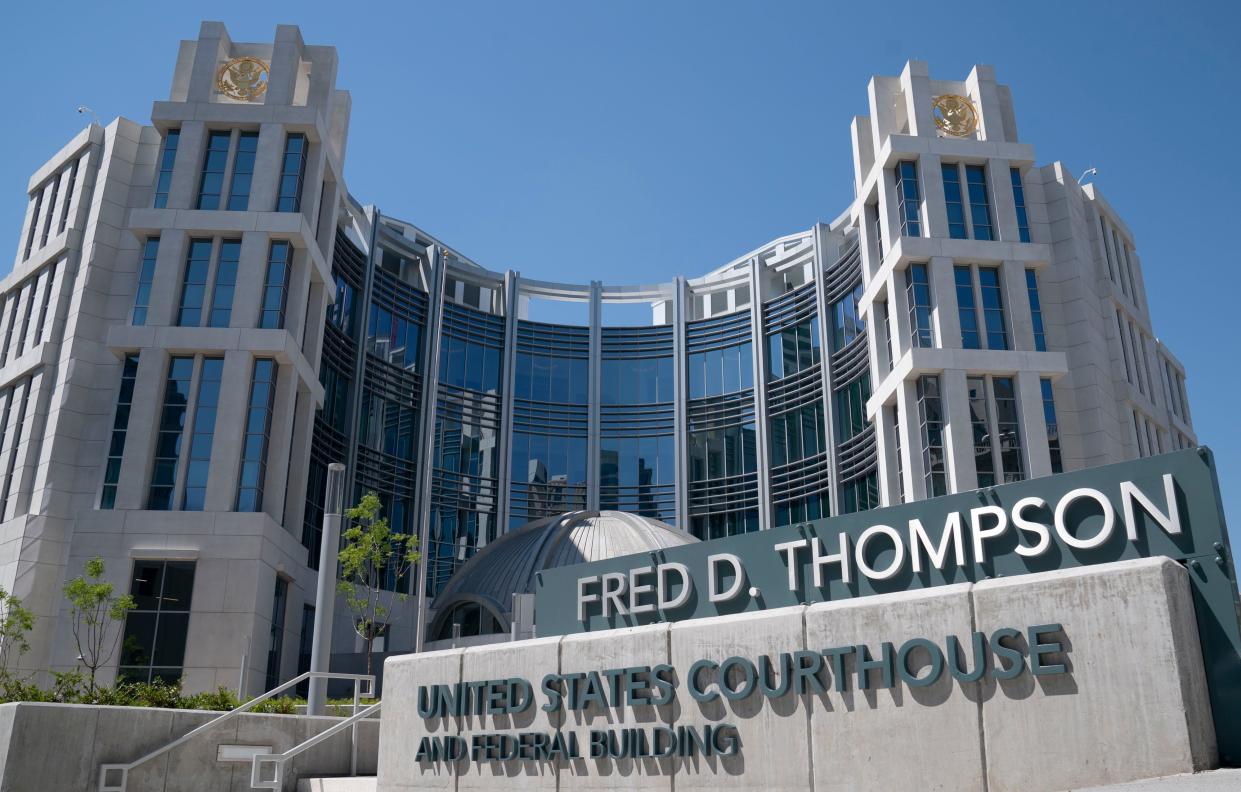Judge: Tennessee's voter registration process for felons violates federal law
A federal judge ruled that Tennessee is violating federal law because its voter registration forms do not inform those with felony convictions they may be eligible to vote and because it requires unnecessary information from those with felony convictions before allowing them to register.
U.S. District Judge William “Chip” Campbell ruled April 18 that the policies do not comply with the National Voter Registration Act (NVRA), writing that misleading statements and omissions in the state’s voter registration forms “could deter eligible voters.”
The ruling is a partial victory for the NAACP in its class action lawsuit filed in 2020 against top state officials over barriers to voter registration for people convicted of felonies.

“The Tennessee NAACP is pleased with the federal judge’s ruling,” said Gloria Sweet-Love, president of the Tennessee NAACP in a news release from the Campaign Legal Center, which is involved in the case. “It takes us a step closer to removing barriers for formerly incarcerated Tennesseans who are seeking free and fair access to the ballot box. We must do all that we can — and we urge the courts and the state Election Division to do all they can — to guard against democratic backsliding, and ensure that all Tennesseans have voter protections.”
How the voter registration policies do not conform with law
For years, Tennessee rejected voter registration forms if the applicant marked that they had been convicted of a felony and did not provide additional documentation proving they had their voting rights restored or were otherwise eligible to vote, despite forms failing to define what documents were needed and county officials having access to the documentation needed to confirm the applicant was eligible to vote.
“As it is undisputed that county and state election officials have the information the State says it needs to assess an applicant’s eligibility (to vote), Tennessee’s challenged documentation policy does not comply with the NVRA’s prohibition against requiring unnecessary information,” Campbell wrote.
There are several classes of people convicted of felonies who never lost their right to vote in Tennessee, including anyone convicted between 1973 and 1981 and people convicted of anything but 21 specific “infamous” crimes before 1973. In addition, people who did lose their right to vote because of a conviction can regain it under provisions in state law.
Campbell found that both the most recent and prior version of the state voter registration form failed to inform one of those groups.
The prior version, which states “you must not have been convicted of a felony, of if you have, your voting rights must have been restored,” excludes those who never lost their right to vote, Campbell wrote. The current version, which states that eligibility “depends upon the crime you were convicted of and the date of your conviction,” excludes those who had their right to vote restored, Campbell wrote.
While finding that the forms do not comply with the NVRA, Campbell said he did not have enough information from either the NAACP or the state to determine “what level of specificity” is required under the law.
States don't have carte blanche when requesting info from potential voters, judge writes
The state’s top two election officials’ defenses failed to persuade Campbell. Tennessee Secretary of State Tre Hargett and Coordinator of Elections Mark Goins told the court that under a new policy change, the state no longer requires additional documentation from those convicted of felonies between 1973 and 1981 or pre-1973 “non-infamous” felonies.
“The timing of Election Division’s policy change … raises suspicions that its cessation is not genuine,” Campbell wrote.
The officials also cited a Supreme Court decision that state voter registration forms may require more information than federal voter registration forms do. True, Campbell wrote, but he said that Tennessee had taken it too far.
“[T]his statement does not stand for the proposition that states may require information on their State Forms 'carte blanche,' as the Tennessee Election Officials appear to suggest,” Campbell wrote.
Other claims in the NAACP’s lawsuit were not decided in Campbell’s ruling, so the case is still ongoing.
Tennessee's practices on voter registration have been widely criticized by voting rights advocates. In January, The Tennessean reported that state officials quietly made it a requirement that people seeking to regain their right to vote after a felony conviction must first be able to own a gun.
Tennessee disenfranchises more than 470,000 citizens, more than any other state besides Florida, according to a 2022 report by the Sentencing Project. It has the country's highest rate of disenfranchisement of Black and Latino Tennesseans, the report found.
Evan Mealins is the justice reporter for The Tennessean. Contact him at emealins@gannett.com or follow him on X, formerly known as Twitter, @EvanMealins.
This article originally appeared on Nashville Tennessean: Tennessee felon voter registration process violates federal law: Judge
